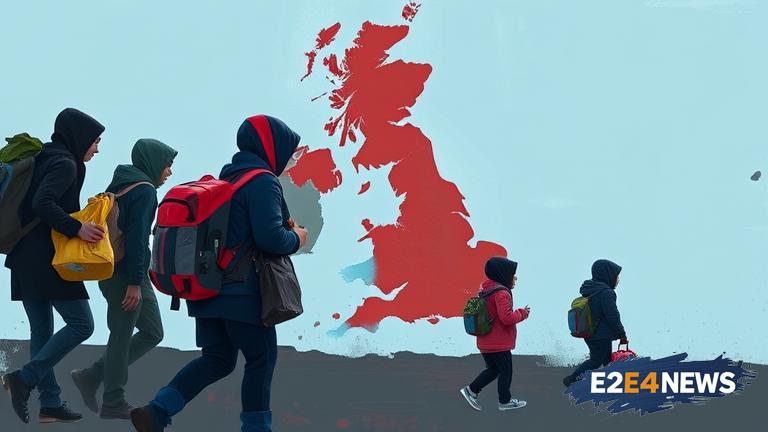The UK government has declared its intention to impose sanctions on those who enable migrant journeys across the English Channel. This move is part of a broader effort to curb the rising number of migrants attempting to cross the channel. The sanctions will target individuals and organizations that provide support, guidance, or resources to migrants, including those who operate boats, provide navigation services, or offer other forms of assistance. The UK government has stated that these sanctions will be imposed in an effort to disrupt the business model of people smugglers and deter others from engaging in similar activities. The announcement comes as the number of migrant crossings continues to rise, with many attempting to make the perilous journey from France to the UK. The UK government has faced criticism for its handling of the migrant crisis, with some arguing that the sanctions will do little to address the root causes of the issue. Others have expressed concerns that the sanctions will unfairly target legitimate organizations and individuals who are providing humanitarian assistance to migrants. The UK government has defended its decision, stating that the sanctions are necessary to protect national security and prevent the loss of life at sea. The sanctions will be imposed in conjunction with existing laws and regulations, including the UK’s Immigration Act. The UK government has also announced plans to increase cooperation with French authorities to tackle the issue of migrant crossings. This will include joint patrols and intelligence sharing to disrupt people smuggling networks. The UK government has stated that it will also provide additional support to migrants who are seeking to claim asylum, including access to legal advice and counseling services. However, critics have argued that the UK’s asylum system is already overwhelmed, and that the additional support will do little to address the backlog of cases. The issue of migrant crossings has become a major political issue in the UK, with many calling for tougher action to be taken. The UK government has faced pressure from some lawmakers to take a more hardline approach, including the use of military assets to patrol the channel. However, others have argued that such an approach would be ineffective and potentially dangerous. The UK government has stated that it will continue to work with international partners to address the root causes of migration, including poverty, conflict, and persecution. The sanctions are expected to come into effect in the coming weeks, although the exact details of how they will be implemented have not yet been announced.
